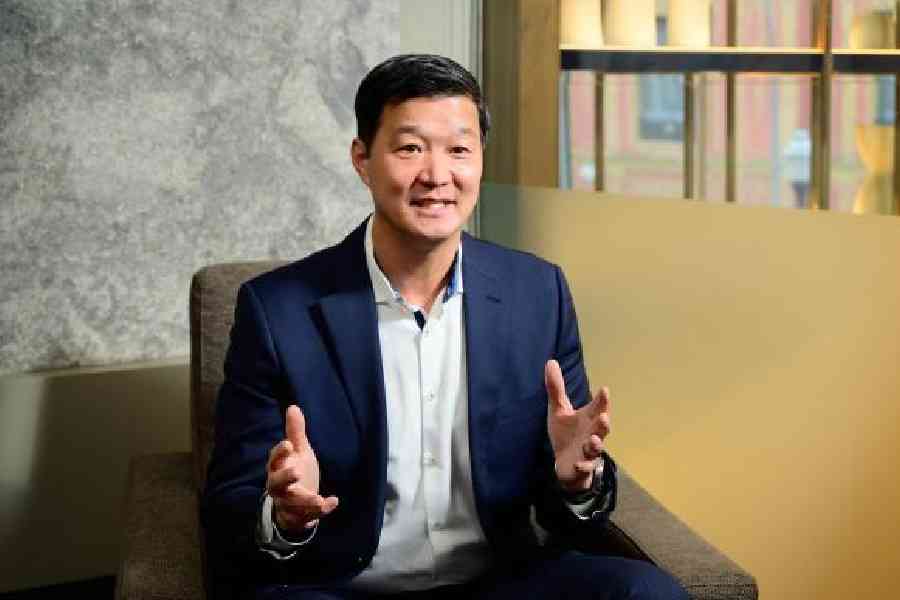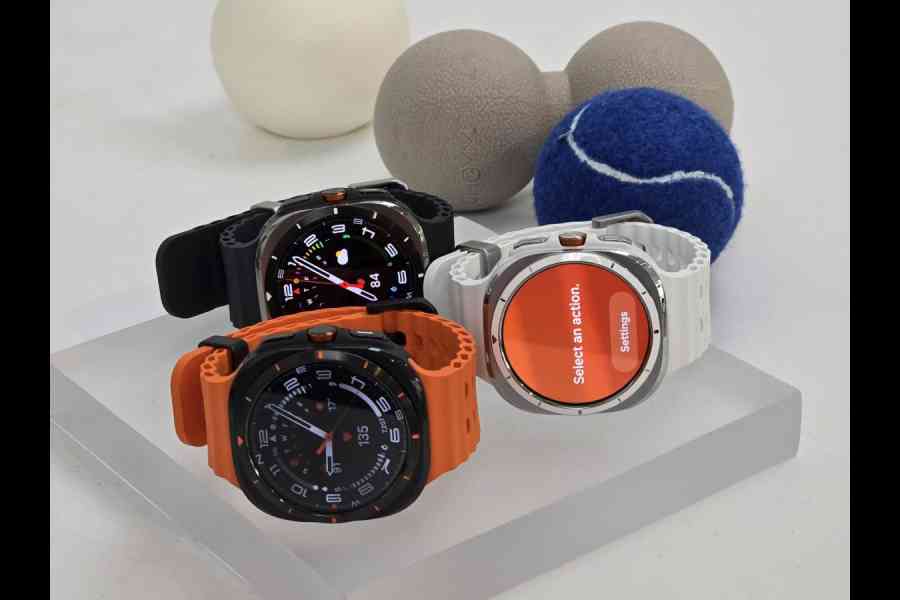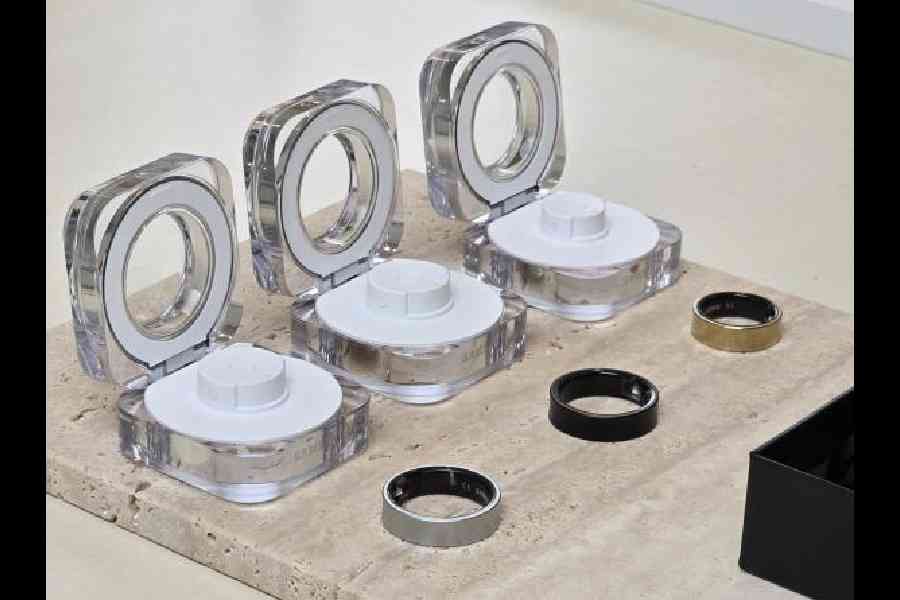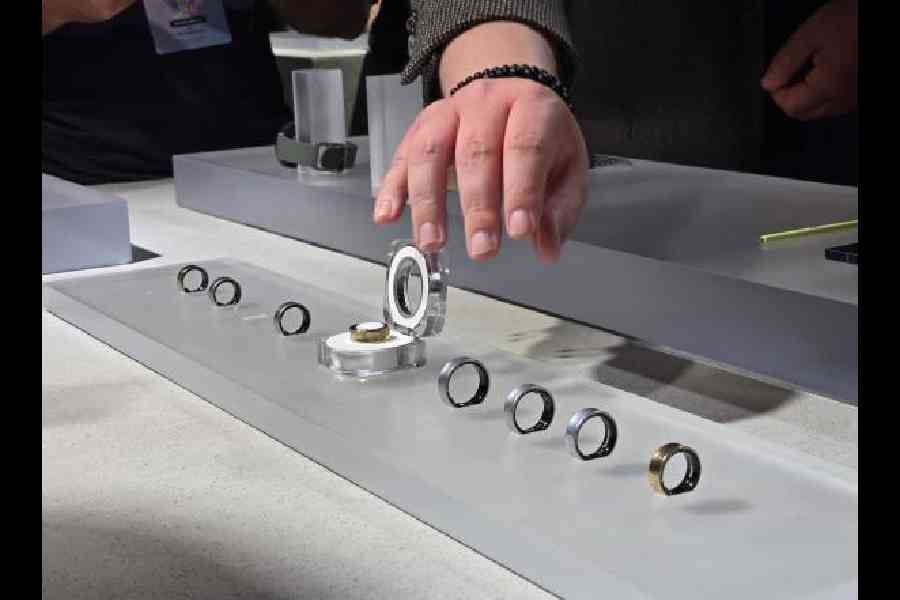The advent of the smartwatch monitoring our heart rhythms and step count has excited us for years but a more discreet device was required. Samsung has delivered just that in the form of the Galaxy Ring. The overall design doesn’t stray from the few already available smart rings but the category required a global tech company to show where the smart device can go next.
The new device from the South Korean company complements the many smartwatches it already has, especially the latest ones — Galaxy Watch7 and Galaxy Watch Ultra. Together, there is enough fuel to drive Samsung’s goals in the smart health category.
But such devices also raise a question: In India, some doctors don’t trust the readings of a smartwatch, let alone the new smart ring. Does Samsung see the relationship between patients and doctors change in the near future?

Dr Hon Pak, vice-president and head of digital health team, mobile experience business at Samsung Electronics
Dr Hon Pak, vice-president and head of digital health team, mobile experience business, Samsung Electronics, considers the question for a few seconds and then came his reply: “If you look at trends, particularly in the US and globally, you’re seeing physicians adopt more digital health technologies, particularly remote patient monitoring. These things seem to be now near mainstream in some aspects. But I think, to your point, what we’re realising is that it has to be within the physician’s workflow. If it’s not within the physician’s workflow, trying to tell a doctor to do something different doesn’t work. So part of this is about how you seamlessly integrate the data. There are companies that are looking at digital formularies that’s integrated into the EHR (electronic medical records); within the EHR, just like you would prescribe a medication, you can prescribe an app as an example. That kind of workflow begins to solve problems. It’s about education. I think RPM (remote patient monitoring) and telehealth did not get adopted until Covid. When there were no choices… when there was an epidemic, that’s what caused the adoption. Meet the needs of the consumer… get them engaged with doctors more. I think if we can do that right, then I think we could potentially solve this problem. But it’s going to take time.”
Dr Pak oversees innovative solutions that disrupt and improve healthcare by leveraging Samsung’s strengths in mobile technologies and their connection to the broader ecosystem. As an internationally recognised clinician and innovator in the field of telemedicine and healthcare IT, he also brings significant clinical research experience to his role. He served as an adjunct faculty in Georgetown University and is on the editorial board for the Journal of Telemedicine and eHealth, a publication that focuses on telemedicine technologies. Dr. Pak has also served as chair of the American Telemedicine Association Board, advisor for the health category for Consumer Electronics Show (CES), and chief medical information officer for the US Army.
‘Healthcare is ripe for change’
Galaxy Ring has been designed to be a discreet health tracker. There are no vibration motors or LED light indicators on it. It comes with an accelerometer, optical heart rate sensor (including green, red, and infrared LEDs), and skin temperature sensor. Broadly, the user can track sleep, heart rate data and activity while taking advantage of a few Galaxy AI-driven metrics to the mix, like Energy Score and Wellness Tips features. The former uses Galaxy AI to determine how you’re feeling based on sleep, activity, sleeping heart rate, and sleeping heart rate variability. And Wellness Tips is based on your data and delivers insights into your well-being.
The new device can be used without having to wear the Galaxy Watch but if both are used together, you may get a better overview of your health.
“We think that healthcare is ripe for change. Our vision is connected care centred around the home. And we say centred around the home because if you look at the major trends of ageing, increasing population, workforce shortage in health care, and then you look at the cost of health care, and it’s really unaffordable, or access is a problem. Given all those things, we think there’s a collision happening… where health care is now shifting to family members and caregivers to manage providing care to the loved ones. We think they need better tools to be able to navigate what is very complex and fragmented. When we say connected care, we mean three things: connected devices, bring data across devices and connecting people. We think health is a team sport; we think it’s very hard to change behaviours, even if we know we’re supposed to do that. Lastly, it’s about connecting services, meaning it’s not enough that we say there’s a potential problem with some insight,” said Dr Pak.
The hardware on the new Galaxy watches requires a closer look. An enhanced BioActive Sensor offers increased accuracy, empowering users to better understand themselves with comprehensive readings. For the first time, Galaxy Watch7 allows users to conveniently track advanced glycation end products (AGEs) right from their wrist with an AGEs Index. Influenced by diet and lifestyle, AGEs reflect a user’s overall biological ageing process and provides an indication of metabolic health.
Privacy is paramount
Most smart rings that are already there in the market come with a subscription model, that is, you pay for the ring and then there is a monthly/annual fee to use certain features. Samsung has avoided the subscription model and that can drive interest in the new product. “We decided that a subscription is not the right model for us. Given the features we are currently providing, we think that should be free. We think a subscription would have been the wrong model for us. We’ll never go back to the users who will use these features and say, we’re going for subscriptions,” said Dr Pak.

Samsung Galaxy Watch Ultra is for fitness enthusiasts
With more health data at hand, the need for privacy cannot be overlooked. “We’re on-device first and so we have Knox Security. We have other capabilities in which we lock down the data on the phone. We’re taking all the steps that are necessary to make sure users understand how the data is being stored and how it is being managed. Privacy and trust are the number-one priority because if you look at Samsung, the only reason we’re here is because people trust us. And the moment in healthcare we do something stupid, that going to go away.”
What next? Diabetes monitoring in a non-invasive fashion? Is anyone close to that breakthrough? “Some will say, it’s not possible. Some will say, it’s a matter of years. So, who do you believe? But I think the ages index is one small step towards that.”
For the moment, there is a big emphasis on sleep, be it using the Galaxy Watch or the Galaxy Ring. Users will get a sleep score that takes into account metrics like movement during sleep, sleep latency, and heart and respiratory rate. Samsung has interesting ideas of how smart rings can work within its gadget ecosystem.

Samsung Galaxy Ring comes with a charging case
The company has a great opportunity to expand in the wearable segment because it has two important gadgets — smart ring and smartwatch. The user is free to choose either or both devices. Dr Pak points out that if somebody buys both devices, there can be the option for the user to charge either device at night without compromising on gathering health metrics. Further, some people may not wear their smartwatch properly while going to bed and that’s where the Galaxy Ring can help. Also, getting metrics from both devices on the Samsung Health app will help.
There is only one question that Samsung needs to figure out: Can one grow out of a smart ring?











